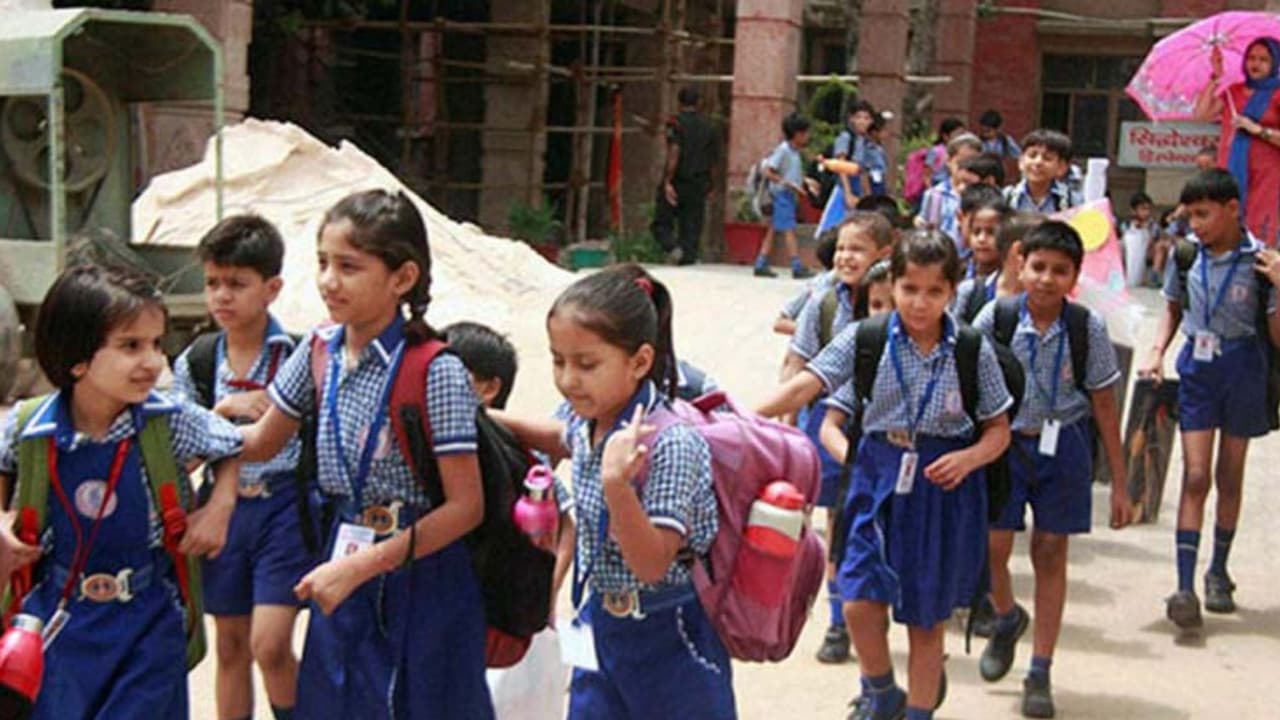Top Stories
Karnataka Bans Student Participation in Non-Academic Events

The Karnataka School Education Department has implemented a ban on the use of government school students as spectators in various events. This decision aims to limit non-academic activities during school hours, which have disrupted classroom learning and hindered educational progress. The new directive prohibits students from attending both government and private functions.
In an effort to reinforce educational priorities, the order specifies that any activities involving students as audience members are strictly forbidden. Previously, school children often participated in events such as government anniversaries, awareness rallies, and other public functions, which detracted from their learning experiences.
Comprehensive Guidelines Issued
The order lays out several key restrictions to ensure that classroom time remains focused on education. Teachers and headmasters are not permitted to attend training programs, workshops, or meetings during school hours, whether these are mandated verbally, in writing, or through official duty instructions. District Collectors and Chief Executive Officers of Zilla Panchayats are also directed not to issue any conflicting directives.
Additionally, the directive prohibits scheduling meetings or video conferences for teachers and headmasters during school hours. Officials visiting schools must ensure that the educational process is not interrupted. The order clearly states that no government school students can be taken off-site to participate in or observe any programs.
Another significant aspect of the directive addresses the use of school premises for examinations. External exams, such as those administered by the Karnataka Public Service Commission, cannot occur during school days and should only be conducted on public holidays or during summer vacations. Non-compliance with these regulations will lead to disciplinary actions against relevant educational officials, including Deputy Directors and Block Education Officers.
Focus on Educational Integrity
The directive is grounded in the principles of the Right to Education Act, which mandates that students and teachers must be present in schools during school hours to facilitate effective teaching and learning. Ensuring full attendance of teachers and headmasters is considered essential for improving learning outcomes and providing quality education in government schools.
V. Rashmi Mahesh, Principal Secretary of the Department of School Education and Literacy, emphasized the importance of adherence to this new order among all educational officials at the state and district levels.
Public response has been largely positive. Suryaprakash, Administrator of Vasavi Vidyaniketana School in Ramanagara, praised the government’s decision. “It is commendable that the government has issued an order to prevent the use of school children in functions and rallies. This should apply to all schools, not just government schools. Children’s participation should be avoided in any programme other than for educational purposes,” he stated.
The measures introduced by the Karnataka government reflect a commitment to prioritize education and safeguard students’ learning environments. As the implementation of these guidelines progresses, the focus remains on fostering a better educational experience for students across the state.
-

 World5 months ago
World5 months agoSBI Announces QIP Floor Price at ₹811.05 Per Share
-

 Lifestyle5 months ago
Lifestyle5 months agoCept Unveils ₹3.1 Crore Urban Mobility Plan for Sustainable Growth
-

 Science4 months ago
Science4 months agoNew Blood Group Discovered in South Indian Woman at Rotary Centre
-

 World5 months ago
World5 months agoTorrential Rains Cause Flash Flooding in New York and New Jersey
-

 Top Stories5 months ago
Top Stories5 months agoKonkani Cultural Organisation to Host Pearl Jubilee in Abu Dhabi
-

 Sports4 months ago
Sports4 months agoBroad Advocates for Bowling Change Ahead of Final Test Against India
-

 Science5 months ago
Science5 months agoNothing Headphone 1 Review: A Bold Contender in Audio Design
-

 Top Stories5 months ago
Top Stories5 months agoAir India Crash Investigation Highlights Boeing Fuel Switch Concerns
-

 Business5 months ago
Business5 months agoIndian Stock Market Rebounds: Sensex and Nifty Rise After Four-Day Decline
-

 Sports4 months ago
Sports4 months agoCristian Totti Retires at 19: Pressure of Fame Takes Toll
-

 Politics5 months ago
Politics5 months agoAbandoned Doberman Finds New Home After Journey to Prague
-

 Top Stories5 months ago
Top Stories5 months agoPatna Bank Manager Abhishek Varun Found Dead in Well









